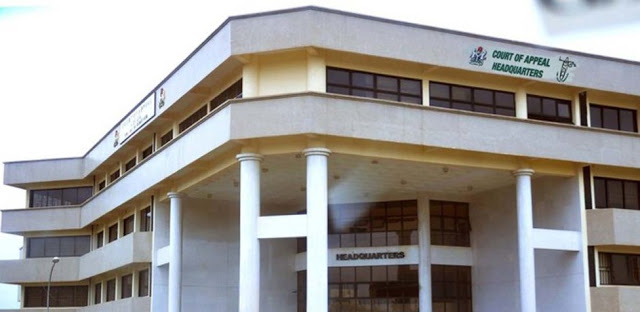
THE Court of Appeal in Abuja has fixed Wednesday for judgment in three consolidated appeals challenging the February 25, 2020 verdict of the Federal High Court in Abuja which convicted an ex-national publicity secretary of the Peoples Democratic Party, Olisa Metuh, on money laundering charges.
Our correspondent confirmed from court officials that the hearing notice for the judgment was served on the lead lawyers involved in the case through phone messages on Monday.
The lawyers were notified that the judgment would be delivered by the Justice Stephen Adah-led three-man panel of the Court of Appeal by 2pm on Wednesday.
Two of the three consolidated appeals were filed separately by Metuh and his Destra Investment Limited, both convicted in the Federal High Court’s judgment.
The third was filed by a former National Security Adviser, Col Sambo Dasuki (retd.), who was indicted in the contested judgment of the Federal High Court for acting in breach of public trust and paying proceeds of his alleged corrupt act to Metuh and his firm.
Justice Okoh Abang of the Federal High Court had on February 25, this year, convicted and sentenced Metuh to seven years’ imprisonment for money laundering charges involving alleged concealment and unlawful use of the N400m paid to him and his firm Destra Investments Limited, by Dasuki as the NSA in November 2014.
The Justice Adah panel had on September 22, 2020 heard the three appeals, with Metuh, his firm, and Dasuki urging the court to set aside the judgment.
But the Economic and Financial Crimes Commission’s counsel, Mr Sylvanus Tahir, urged the court to affirm the lower court’s verdict.
Dasuki’s lawyer, Mr Joseph Daudu (SAN), stated that “there are at least 10 findings made by the trial court holding the appellant, Dasuki guilty of the predicate offence of corruption and criminal breach of trust.”
Although not a defendant in Metuh’s trial that lasted about four years at the Federal High Court, Dasuki in his appeal, contended that his “conviction” in the judgment without being given the opportunity to defend himself was a breach of his fundamental rights to fair hearing.
Daudu contended “that the magnitude of the breach of the right to fair hearing has rendered the entirety of the proceedings worthless and non-existent having not been tried under or through the lawful or appropriate procedure.”
But the EFCC, through its lawyer, Tahir, urged the court to dismiss the appeal for lacking in merit.
He argued that Dasuki, not being a party to the trial at the Federal High Court, he had no right to appeal against the judgment.
He also maintained that contrary to the ex-NSA’s claim, the judgment did not convict him.
In this article:
